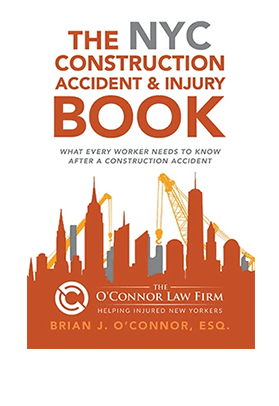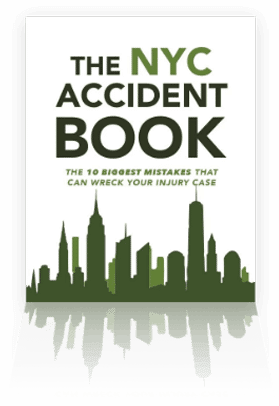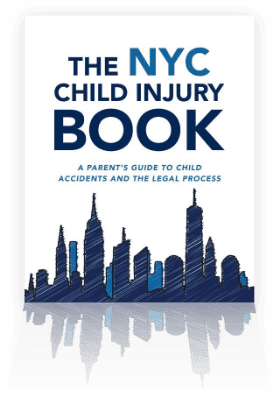Staten Island Traumatic Brain Injury Lawyer
If you struck your head during an accident, or if you were diagnosed with a concussion or whiplash following a crash, you may have also suffered a traumatic brain injury (TBI). Unlike other injuries — which may be visible — TBIs can manifest in hidden or subtle ways. Many people walk away from an accident believing they are largely unharmed only to slowly realize something is wrong in the days, weeks, and months that follow when they cannot sleep, struggle to speak, or have impaired memory.
At The O’Connor Law Firm, our goal is to obtain the maximum compensation for our clients following an accident. If you suffered a TBI as a result of another person’s negligence, give us a call. We can help you document the changes in your life and bolster your claim for compensation.
A Closer Look at TBIs
A traumatic brain injury involves structural damage to the brain which can affect daily functions. The brain is the command center of the human body, with neurological signals racing from the brain throughout the body at all hours of the day. Trauma can upset this delicate circuitry.
A TBI can be an “open” or “closed” injury. With an open injury, something penetrates the skull and directly damages brain tissue. Getting shot in the head is a clear example. But most TBIs are closed, where the skull stays intact throughout the accident. Both open and closed injuries are very serious.
One misconception is that you need to be struck directly on the head to suffer a TBI. That is not always the case. Instead, any violent movement that shakes the brain can cause a TBI.
Traumatic Brain Injury Symptoms
One common sign that you have suffered a TBI is that you lose consciousness immediately after an accident. However, not everyone with a TBI loses consciousness, so we can’t rely solely on that fact to reach a diagnosis. Instead, look for:
- Physical impairments, including a loss of balance or coordination, blurred vision, headaches, convulsions, or paralysis to any part of the body.
- Cognitive impairments, such as problems following a conversation, impaired memory, confusion, or difficulty speaking.
- Behavioral changes, such as irritability, mood swings, depression, anxiety, or disrupted sleep patterns.
Some of these changes could be the result of other injuries, not necessarily brain injuries, so get to the hospital for a doctor to review.
What Causes a Traumatic Brain Injury?
You can sustain a TBI in a number of accident types, including:
- Car accident
- Truck accident
- Slip and fall
- Fall from a great height
- Sports injury
- School injury
- Violent attack
Scientists are not completely certain on how or why a TBI impairs the brain, but one of the most common examples is the violent shaking experienced can lead to tiny tears in brain tissue, resulting in damage.
How TBIs Impair a Person’s Life
Many people will find that they cannot return to work while they struggle to recover from a TBI, even a relatively mild one. Our clients have lost out on valuable income, sometimes because they cannot even leave the house. Violent headaches, seizures, or imbalance can make it hard for someone to stand or walk around.
Blue light emitted from a computer can also cause problems. Someone who only sits at a desk and works might need to miss months of work because even short bursts of computer work leave them fatigued or in pain.
TBIs cause stress in any family. Someone with a moderate or severe TBI might be unable to take care of themselves and need assistance bathing, dressing, or eating. Family members often feel overwhelmed and completely unprepared for what has happened to their loved ones. Many families benefit from therapy to address the emotional stress caused by the accident.
Brain Injury Severity & Treatment
Not all TBIs are the same — but all are serious and should be treated as such. Our Staten Island firm has helped clients suffering from mild, moderate, or severe TBIs. The severity can greatly impact a person’s ability to recover and return to normal life.
- Mild TBI. A patient may or may not blackout with a mild TBI. However, they should experience symptoms for months, such as headaches or dizziness. Sometimes, a mild TBI can continue to cause problems for a year or more. Other patients will experience slow improvement with rest.
- Moderate TBI. Those suffering from a moderate TBI typically blackout for at least a few seconds, possibly longer. Side effects are more severe and can include seizures or psychological problems, including mood changes. A moderate TBI can take a year or more to recover from.
- Severe TBI. This is the most serious brain injury and can result in prolonged loss of consciousness. A severe TBI can send a person to the intensive care unit where their vital signs must be monitored. Some severe TBIs cause permanent impairments, such as impaired mobility or speech.
Unfortunately, there is no pill a patient can take to make the TBI go away. Instead, a mild TBI usually improves with rest. Medication can treat side effects to make a person more comfortable, such as sleeplessness, anxiety, or pain.
More serious TBIs often require rehabilitation to help a person relearn how to use their body. Someone with a severe TBI, for example, might lose the ability to use their arm or hand or be unable to walk. Rehabilitation can help patients regain as much functioning as possible.
Bringing a Claim for a Traumatic Brain Injury
These are some of the harder cases to litigate. There is an obvious problem—because the injury is internal, many insurance adjusters will be skeptical that you are truly injured unless you are confined to a hospital bed with paralysis. Someone with a mild or moderate TBI will need to build up sufficient medical evidence to prove the extent of their injury.
One way to establish brain injury is with an imaging test, such as a CT scan or MRI. They should show bleeding and other injuries. But someone with a mild TBI might have a scan that looks normal because the damage is microscopic, in which case we rely on other factors, such as neurological testing. Often, this testing can establish a link between your accident and impaired executive function or speech.
Another challenge is establishing our client’s pain and suffering — again, because it is not immediately visible, as a paralyzed face would be. We encourage clients to keep a journal in which they daily record how their injury impacts them.
Compensation for a Brain Injury
Our firm focuses intensely on obtaining maximum compensation following a brain injury. You may be entitled to compensation for:
- Medical expenses. A TBI victim will probably incur costs for diagnosis, doctor visits, tests, prescription drugs, counseling or therapy, and prosthetics or home healthcare. Someone with a severe TBI could be confined to a nursing home indefinitely. Other TBI victims will need months of rehab. All reasonable medical care to treat a brain injury should be compensated.
- Lost wages. A TBI often keeps our clients from returning to work. They should be compensated for whatever income and benefits they have lost. If the brain injury results in permanent disability, we can seek compensation for diminished earning capacity.
- Pain and suffering. In addition to physical pain, a brain injury reduces a person’s enjoyment of life and increases their stress. Being confined to a bed or hospital is the very definition of suffering.
- Loss of consortium. Husbands and wives could have a legal claim when their spouse suffers a serious injury. They deserve compensation for the negative changes in their marriage, such as the loss of sexual intimacy or emotional support.
Speak with Our Staten Island Brain Injury Attorney Today
The O’Connor Law Firm realizes that sustaining a traumatic brain injury can be a stressful time. TBIs often make it difficult to use the phone or hold a conversation. Still, help is available. Call us today at 718-948-3500 to schedule a free consultation and begin the process of securing the compensation you deserve. If you cannot travel to our office in Staten Island, we can come to you.




